Colon Hydrotherapy Device Manufacturer
What Is Colon Hydrotherapy?
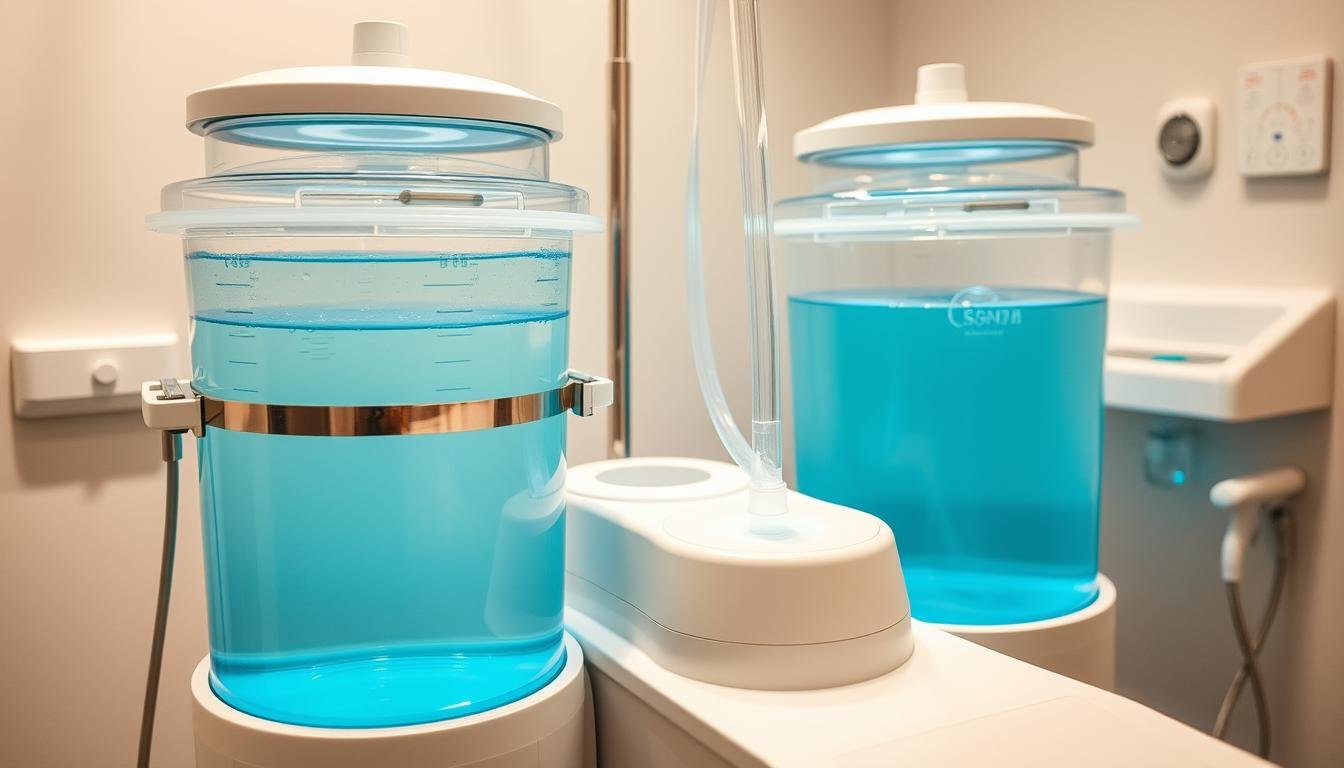
Professional colon hydrotherapy equipment in a clinical setting
Side Effects of Colon Hydrotherapy: Colon hydrotherapy is a procedure that involves flushing the colon with large amounts of water to remove waste material. During the treatment, a trained practitioner inserts a disposable tube into the rectum, through which filtered water flows into the colon. The water, sometimes mixed with herbs or other substances, is intended to soften and loosen accumulated waste, which is then expelled through another tube.
A typical session lasts 30-60 minutes, during which up to 60 liters of water may be used to flush the colon. Practitioners may apply gentle abdominal massage during the procedure to help facilitate the release of waste material. The procedure is often performed in alternative health clinics, spas, or by specialized colon hydrotherapists.
Proponents claim this process removes toxins, improves digestion, boosts energy levels, and enhances overall health. However, medical professionals generally caution that these claims lack substantial scientific evidence, and the procedure comes with several potential risks.
Common Side Effects of Colon Hydrotherapy

Abdominal discomfort is frequently reported after colon cleansing procedures
While some people report feeling refreshed after colon hydrotherapy, many experience uncomfortable side effects. These common reactions typically occur during or shortly after the procedure:
Immediate Physical Discomfort
- Abdominal cramping – The introduction of water into the colon can cause muscular contractions and discomfort
- Nausea and vomiting – The stimulation of the digestive system may trigger feelings of nausea
- Bloating and gas – Water and air introduced during the procedure can cause temporary bloating
- Diarrhea – Loose stools may continue for hours or even days after the procedure
Systemic Reactions
- Fatigue – Some people experience tiredness after the procedure
- Dizziness – Can occur due to fluid shifts or vasovagal responses
- Headache – May develop due to dehydration or electrolyte changes
- Soreness – Rectal or abdominal tenderness following the procedure
Important Note: While these side effects are generally temporary, they can be more severe in individuals with certain health conditions. If symptoms persist or worsen, seek medical attention immediately.
Serious Risks and Complications
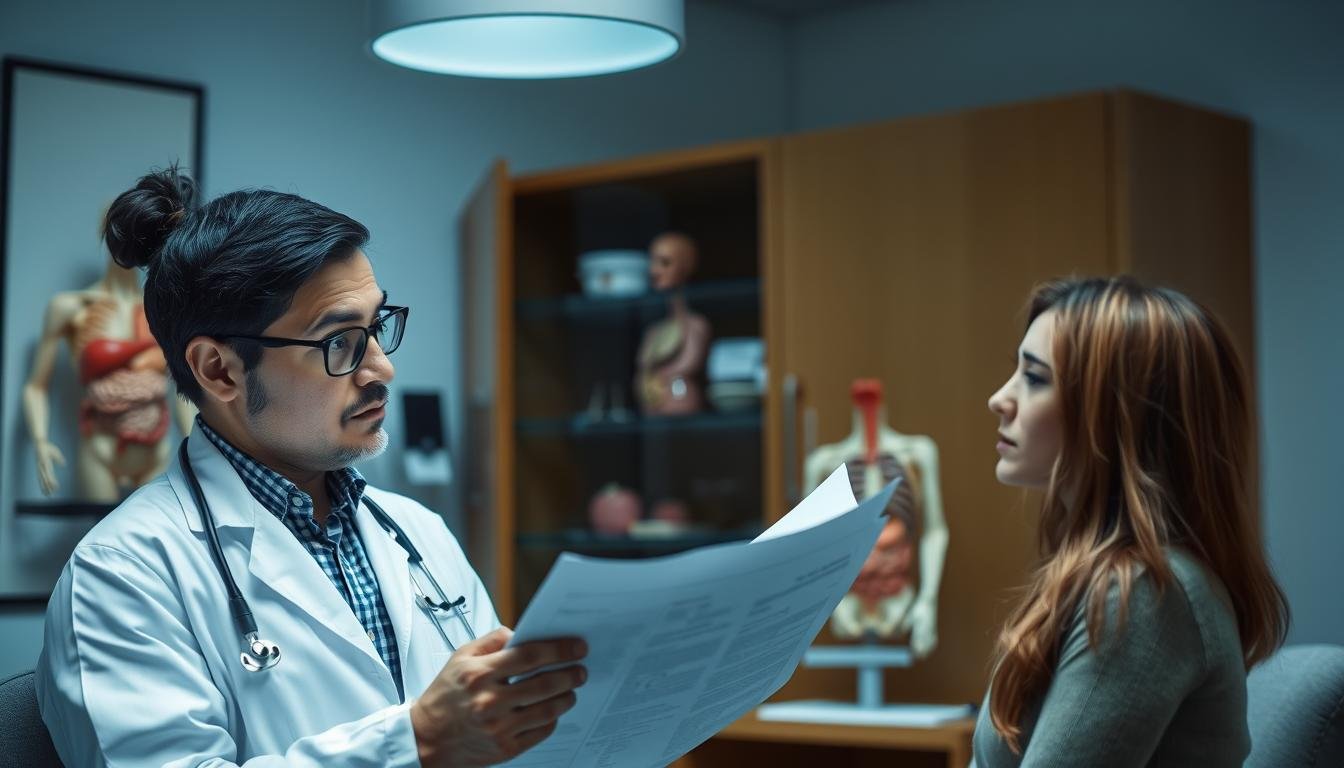
Healthcare providers can explain potential serious complications of colon cleansing
Beyond the common side effects, colon hydrotherapy carries several potentially serious health risks that should be carefully considered:
Dehydration and Electrolyte Imbalance
One of the most significant risks of colon hydrotherapy is disruption of the body’s fluid and electrolyte balance. The colon plays a crucial role in water absorption and electrolyte regulation.
- Dehydration – Excessive fluid loss during the procedure can lead to dehydration
- Electrolyte imbalance – Loss of essential minerals like sodium, potassium, and calcium
- Symptoms – Irregular heartbeat, weakness, confusion, and in severe cases, seizures or kidney damage
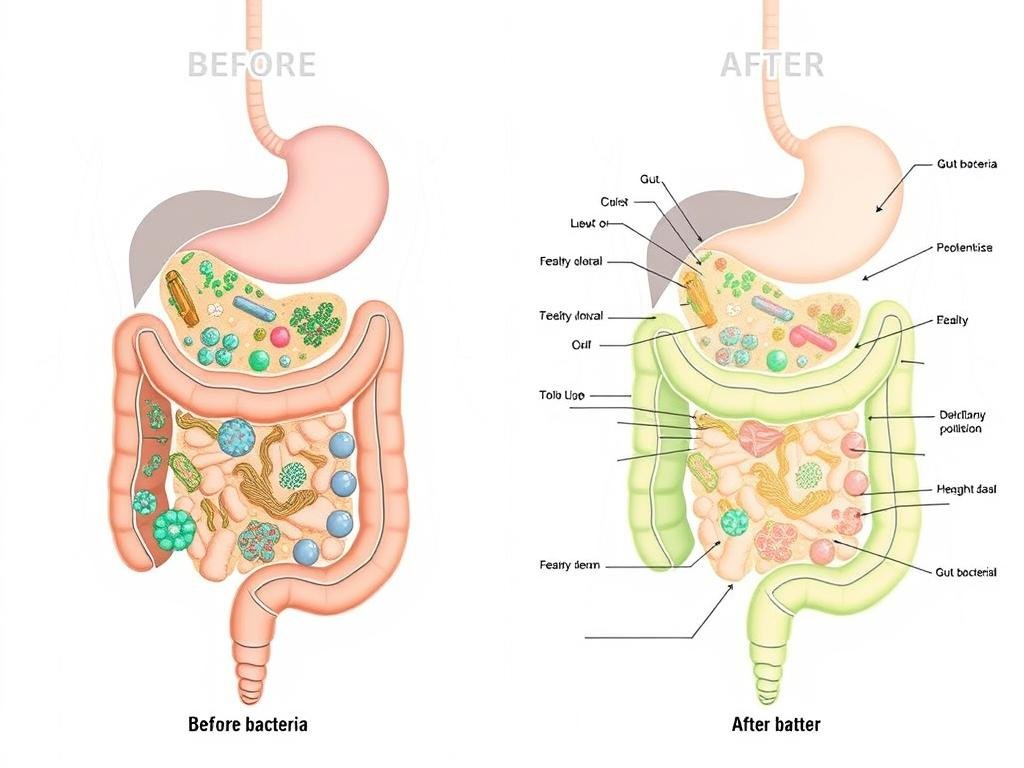
Colon cleansing can disrupt the natural balance of gut bacteria
Disruption of Gut Microbiome
The colon contains trillions of beneficial bacteria that support digestion and immune function. Colon hydrotherapy can disrupt this delicate ecosystem.
- Removal of beneficial bacteria – Flushing can eliminate helpful microorganisms
- Altered gut flora – May lead to digestive issues and reduced immune function
- Increased vulnerability – Potential for opportunistic infections when protective bacteria are reduced
Infection Risks
There is potential for infection during colon hydrotherapy, particularly if equipment is not properly sterilized or if the practitioner lacks proper training.
- Bacterial infections – Introduction of harmful bacteria through contaminated equipment
- Parasitic infections – Possible if water sources are not properly filtered
- Transmission of pathogens – Risk increases with improper sanitation practices
Bowel Perforation
Though rare, one of the most serious potential complications is perforation of the bowel wall.
- Mechanical damage – Improper insertion of the tube or excessive water pressure
- Emergency situation – Requires immediate medical intervention
- Symptoms – Severe abdominal pain, fever, nausea, and signs of infection
Medical Emergency: If you experience severe abdominal pain, fever, rectal bleeding, or vomiting after colon hydrotherapy, seek immediate medical attention as these could indicate serious complications requiring urgent care.
Who Should Avoid Colon Hydrotherapy
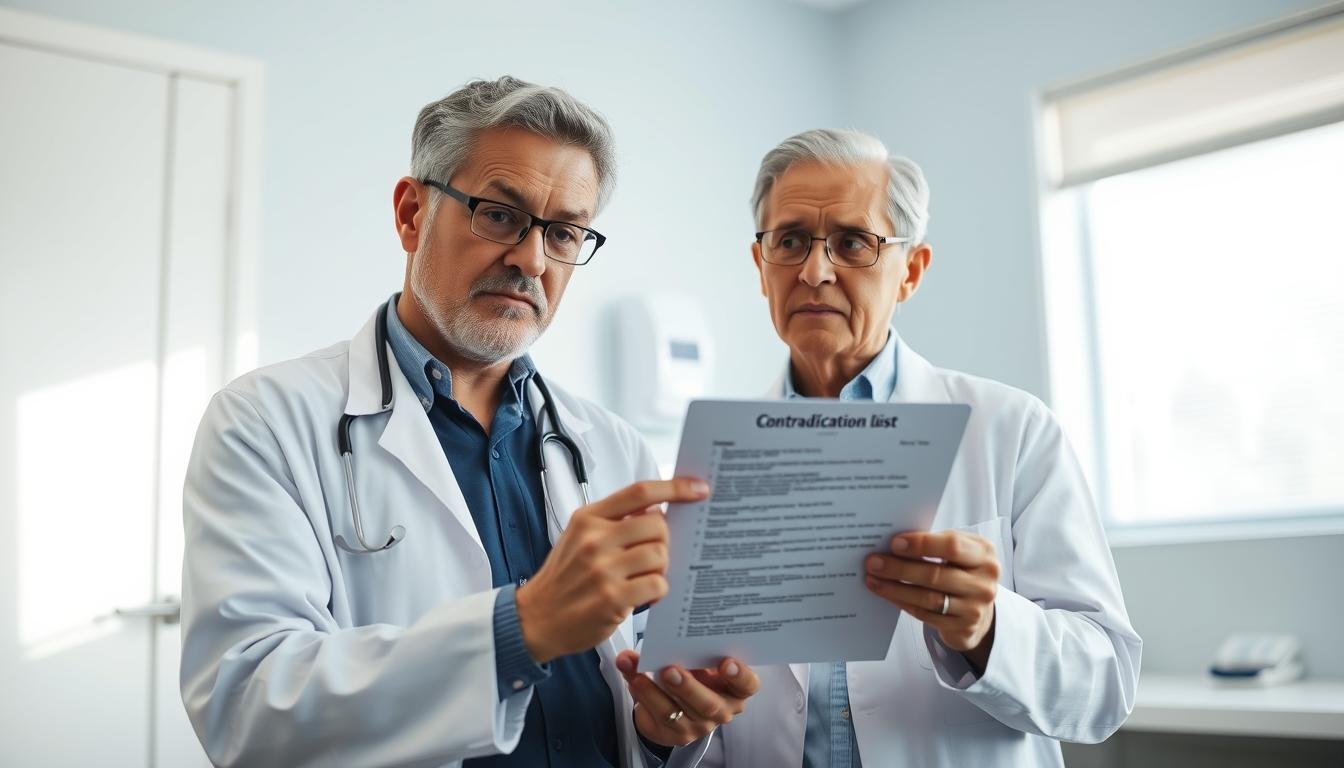
Certain medical conditions make colon hydrotherapy unsafe
Colon hydrotherapy is not appropriate for everyone. The following conditions represent contraindications where the risks significantly outweigh any potential benefits:
Absolute Contraindications
- Recent colon or rectal surgery
- Active inflammatory bowel disease (Crohn’s disease, ulcerative colitis)
- Diverticulitis or severe diverticulosis
- Colorectal cancer or history of colorectal polyps
- Severe hemorrhoids or anal fissures
- Intestinal perforation or history of bowel perforation
- Recent myocardial infarction or severe cardiac disease
Relative Contraindications
- Pregnancy (especially first and third trimesters)
- Hypertension or hypotension
- Kidney disease or renal insufficiency
- Anemia or blood disorders
- Abdominal hernia
- Severe hemorrhoids
- Recent abdominal surgery (within 12 weeks)
Medical Consultation: Always consult with your healthcare provider before undergoing colon hydrotherapy, especially if you have any existing health conditions or are taking medications.
Safety Considerations and Practitioner Qualifications

Choosing a qualified practitioner is essential for minimizing risks
If you’re considering colon hydrotherapy despite the potential side effects, taking certain precautions can help minimize risks:
Practitioner Qualifications
The training and credentials of your colon hydrotherapist significantly impact safety. Look for:
- Certification – Practitioners should be certified by recognized organizations like the International Association for Colon Hydrotherapy (I-ACT) or the National Board for Colon Hydrotherapy (NBCHT)
- Medical supervision – Ideally, the practice should have oversight from a licensed healthcare professional
- Experience – Ask about their training and how long they’ve been performing the procedure
- References – Request testimonials or references from other clients
Facility Standards
The cleanliness and equipment standards of the facility are crucial for preventing infections:
- Disposable equipment – Tubes, speculums, and other insertable devices should be single-use only
- Sterilization protocols – Ask about their cleaning and sterilization procedures
- Water filtration – The facility should use properly filtered water
- Clean environment – The treatment room should be immaculately clean
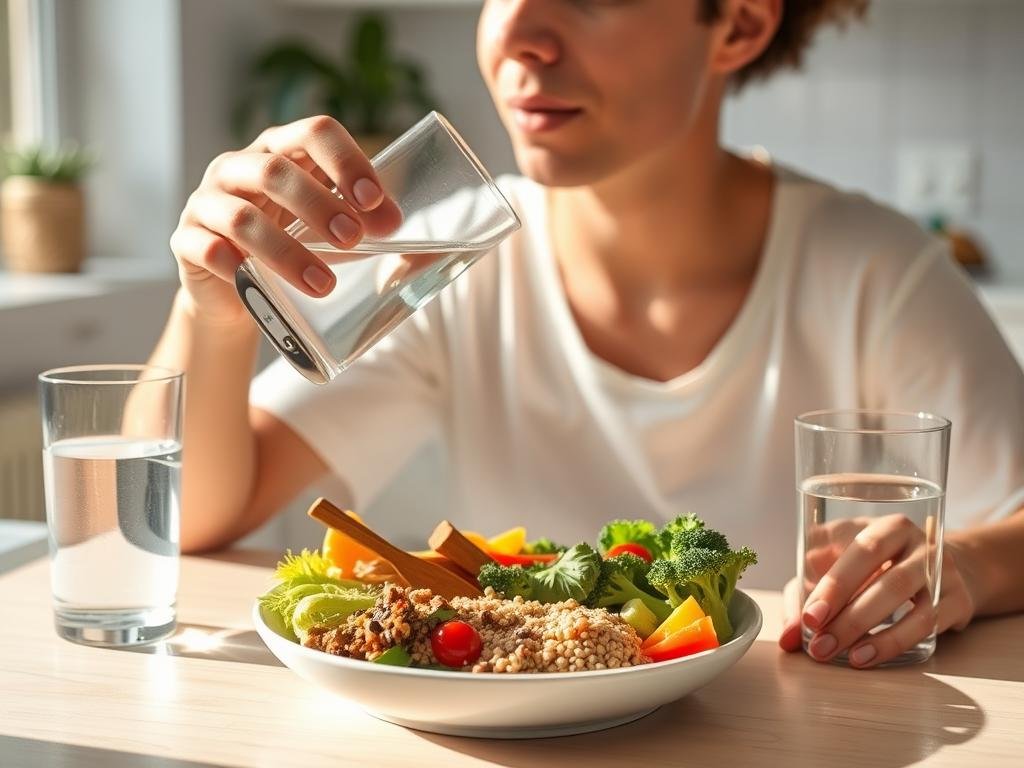
Proper preparation can help reduce potential side effects
Before Your Appointment
Proper preparation can help minimize side effects:
- Hydration – Drink plenty of water in the days leading up to your appointment
- Diet – Avoid heavy, processed foods for 24-48 hours before the procedure
- Medical history – Provide a complete and honest medical history to your practitioner
- Medications – Inform the practitioner about all medications and supplements you take
After Your Appointment
Post-procedure care is important for recovery:
- Hydration – Drink plenty of water to replace lost fluids
- Electrolytes – Consider electrolyte-rich beverages to restore balance
- Probiotics – Some practitioners recommend probiotics to help restore gut flora
- Rest – Allow your body time to recover after the procedure
Healthier Alternatives for Colon Health

A fiber-rich diet naturally supports colon health without the risks of hydrotherapy
Instead of colon hydrotherapy, which carries significant side effects, consider these evidence-based approaches to maintaining colon health:
Dietary Approaches
- High-fiber diet – Aim for 25-30 grams of fiber daily from fruits, vegetables, whole grains, and legumes
- Adequate hydration – Drink 8-10 glasses of water daily to support natural elimination
- Probiotic foods – Include yogurt, kefir, sauerkraut, and other fermented foods
- Limit processed foods – Reduce intake of refined sugars and highly processed items
Lifestyle Factors
- Regular exercise – Physical activity promotes healthy bowel function
- Stress management – Chronic stress can impact digestive health
- Regular bowel habits – Respond to natural urges promptly
- Adequate sleep – Poor sleep can affect digestive processes

Consulting with a gastroenterologist for digestive concerns is safer than self-treatment
When to See a Doctor
Rather than self-treating with colon hydrotherapy, consult a healthcare provider if you experience:
- Persistent constipation or changes in bowel habits
- Unexplained abdominal pain or discomfort
- Blood in stool or rectal bleeding
- Unexplained weight loss
- Chronic diarrhea or constipation
“The colon is quite remarkable because it can care for itself and keep you healthy.”
Making an Informed Decision
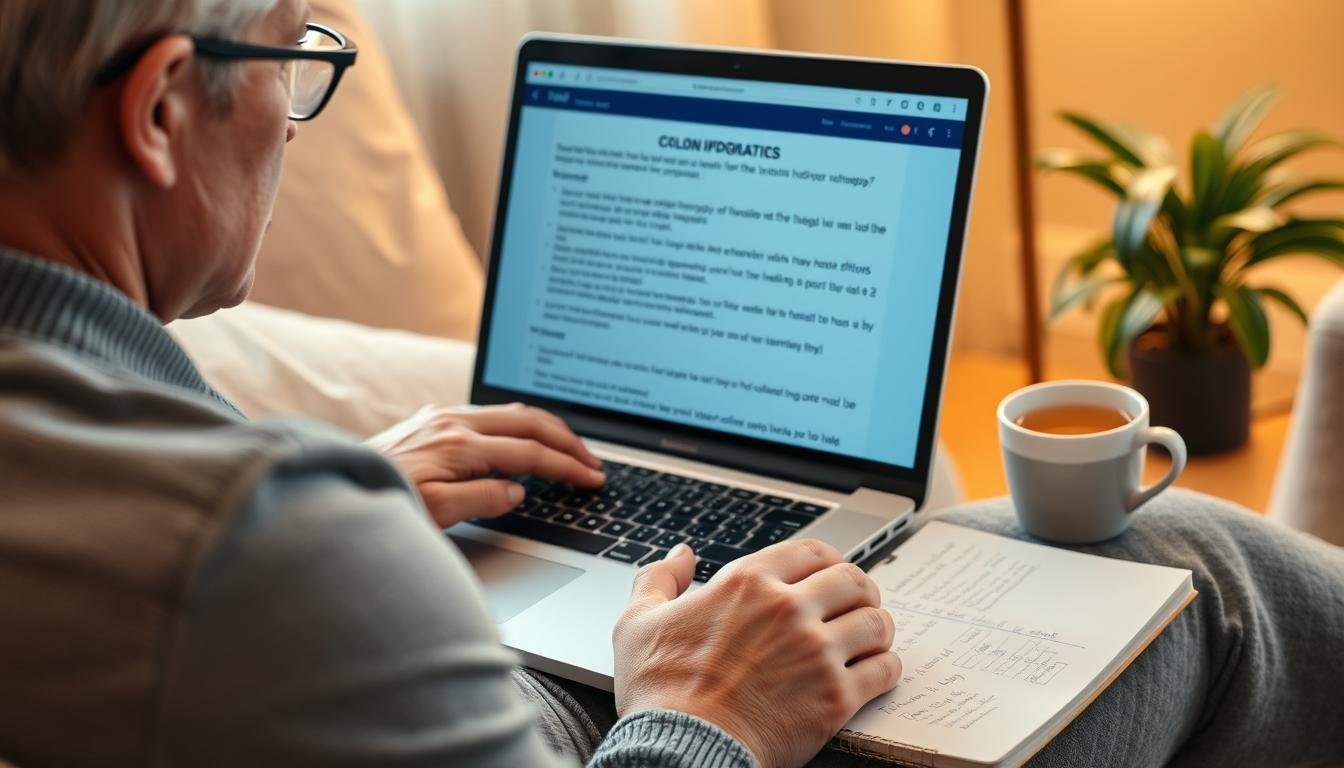
Researching potential side effects helps make informed health decisions
Side Effects of Colon Hydrotherapy: Colon hydrotherapy carries significant potential side effects ranging from mild discomfort to serious complications. While proponents claim various benefits, scientific evidence supporting these claims remains limited, and medical professionals generally do not recommend the procedure.
Your colon naturally eliminates waste and maintains a healthy balance of bacteria without external intervention. Rather than risking the side effects of colon hydrotherapy, consider evidence-based approaches to digestive health, including a fiber-rich diet, adequate hydration, regular exercise, and appropriate medical screening.
If you’re experiencing digestive issues, consulting with a healthcare provider is the safest approach. They can recommend appropriate diagnostic tests and treatments based on your specific symptoms and medical history.
Speak With a Healthcare Professional
If you’re concerned about your digestive health or considering colon hydrotherapy, consult with a qualified healthcare provider first to discuss safer, evidence-based alternatives.
Medical Disclaimer: This article is for informational purposes only and does not constitute medical advice. Always consult with a qualified healthcare provider before starting any new health procedure or treatment.
